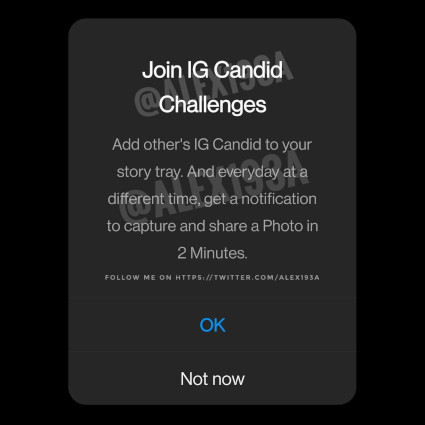Instagram's Next Feature Has Disturbing Privacy Implications But People Won't Care
Discovered by developer and software researcher Alessandro Paluzzi, it looks like the new feature takes inspiration from the app known as BeReal. BeReal, which released in 2020, effectively does exactly what is listed above. It notifies users at random intervals in the day that they have an opportunity to take a photo and selfie but have only up to two minutes to do so. The idea is to encourage sharing a truer glimpse of yourself with friends than the highly manicured selfies we are used to seeing on social media. Meta's copycat tendencies are not our primary concern here, though.
There are, of course, some security and safety concerns that go with something like this. Meta has been known for years to share user data to provide targeted advertising. With their photo-driven application offering, it wouldn't be hard for some image-scanning to take place. Looking for key pieces like location data, or products in the backgrounds of photos intended to provide more data for the advertising aspect of the platform. Add in that there are numerous other organizations out there that specifically specialize in facial recognition. As this feature encourages more selfies, there is absolutely incentive to sell that kind of data. So, there are some things that users might want to be worried about when it comes to personal security if using apps in this manner. This is concerning when you consider Meta's history of using social pressure or other incentives to coerce people into participating in things that also collect data for the purpose of reselling it.
Instagram developers have stated that this feature is currently an internal test only, not available to the public. There's no word on whether or not the feature would be put into public testing or even made available to the public at all. However, this wouldn't be the first time Meta has taken inspiration from a feature or even core function from another app or device. Such as Reels being inspired by TikTok. Doing so is usually meant to appeal to audiences who might be using those other apps, especially considering in many cases they actually outrank Meta-owned apps like Facebook and Instagram in terms of usage and downloads.


